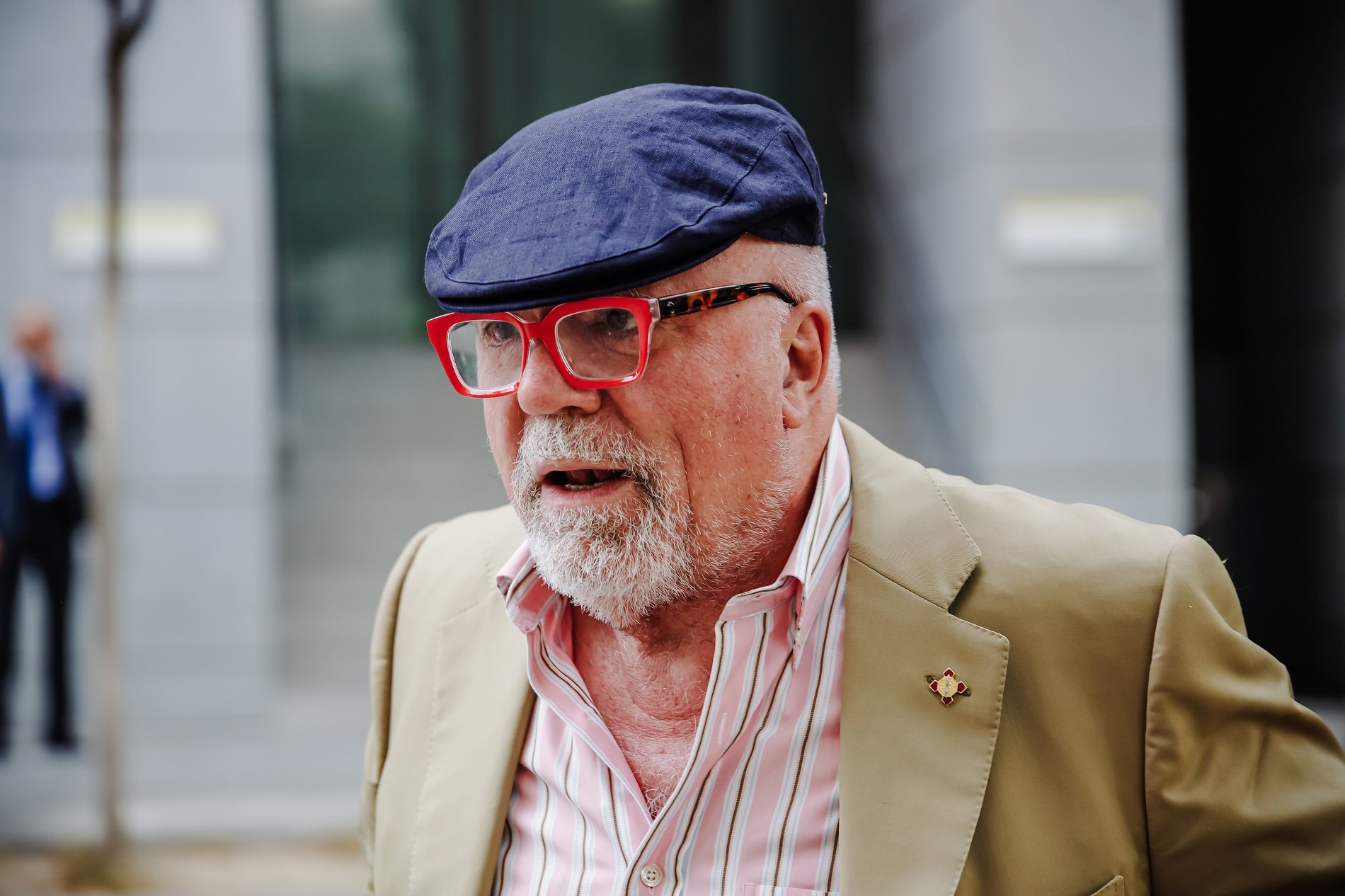The medical report is clear: former Spanish police commissioner José Manuel Villarejo did not suffer a stroke. The court that is trying Villarejo at the National Audience was waiting for this report to decide if the accused is in a position to continue with the trial in the so-called Tandem case, and the medical conclusion is that the ex-commissioner's condition allows him to carry out normal tasks. The report is signed by one of the doctors of the Institute of Legal Medicine in response to the urgent request by the president of the court, Ángela Murillo, to carry out an examination of the accused at his home.
On June 30th, Villarejo asked the National Audience to suspend the sessions planned in the espionage trial for the month of July, assuring that he had suffered "a cerebrovascular accident" - in other words, a stroke - and that the doctor had advised him not to submit to any "situation that is emotional or of significant physical effort" for three months. The 71-year-old former senior police officer wrote to the court saying that he had suffered "a stroke with paresis" in one eye, severe headaches and severe functional limitation of eye movement.
Doctor says Villarejo was not at home
The doctor in charge of the report indicated that he was unable to carry out the examination in person despite having gone to Villarejo's home at 2pm on August 10th, "leaving the facilities of the Institute of Legal Medicine unattended", given that three of the five doctors are on leave and the other was on vacation. The doctor compains that the presiding judge of the court was, at least, aware of this situation, since he had told her by phone. The doctor reports that when he arrived at Villarejo's house and "after calling insistently on repeated occasions" and not receiving an answer, he left the address at 2:10pm. For this reason, the report is based on the medical report that the accused presented at the end of June stating that he had suffered "a stroke".
However, the Institute of Forensic Medicine rules out the cerebrovascular accident claimed by the former police commissioner and stresses that the radiological tests carried out, including a CT scan and magnetic resonance imaging, are "normal" and do not reveal "relevant alterations" (tumor mass, aneurysm or subdural hematoma). On the other hand, the report does detail that Villarejo has had "a complete paralysis of the third cranial pair with a possible microischemic cause, having ruled out a compressive origin", that is to say an injury to the ocular motor nerve which, according to the ophthalmological reports and neurological findings, points to an ischemic cause (inadequate blood flow), which is "the most common and least serious" of possible causes, and generally is a result of diabetes or high blood pressure. As indicated by the doctor, this disease has a treatment based on analgesics and anti-inflammatories and with a patch to reduce double vision. "The prognosis, in general, is good," explains the forensic pathologist, who points out that 70% of cases recover within a period of three months.
No excuses for not appearing
The report thus determines that the ex-commissioner's condition should be improving and "should not be an insurmountable obstacle to the fulfillment of his usual activities", because his pain can be treated with analgesics and his diplopia or double vision by means of a patch or prism glasses. The medical examiner notes that Villarejo had already appeared with a patch on his left eye in 2021, which suggested that he could have suffered a similar episode, "a circumstance that did not prevent him from going to court". However, the report indicates that if the evolution of the court process is normal, nothing will prevent the retired police commissioner from going to the offices of the Institute of Legal Medicine to be examined before September 5, the date on which the court has summoned the parties to resume the trial.
Tandem case
The trial of former police commissioner José Manuel Villarejo in Spain's National Audience began on October 13th 2021, almost four years after he had been arrested in Operation Tandem, which uncovered alleged espionage charges and brought to light a set of audio recordings that he had kept hidden for years. The trial, however, concerns only three alleged espionage actions out of the 30 that the court is investigating. The public prosecutor demands a total of 110 years in prison for Villarejo.
Since being arrested and sent to pretrial prison in November 2017, Villarejo has been the protagonist of a legal case that has grown steadily as more allegedly illegal business affairs have been discovered, involving former high-ranking officers of IBEX35 companies as well as Spanish government officials and ministers.

